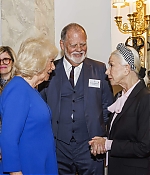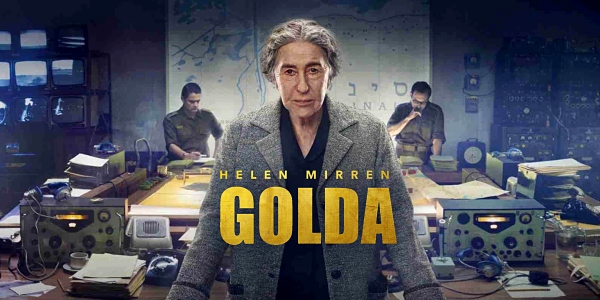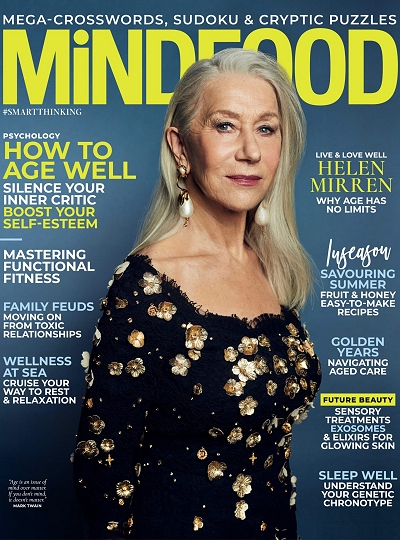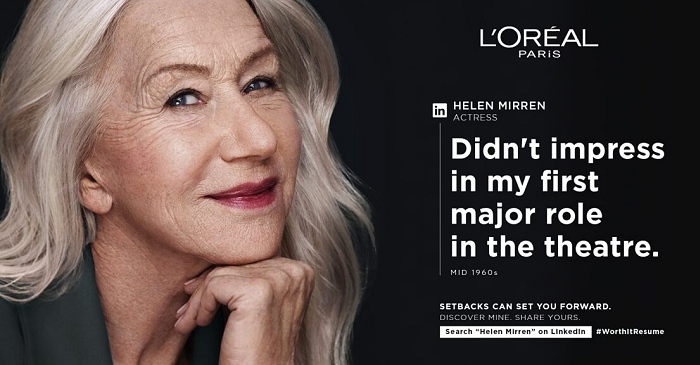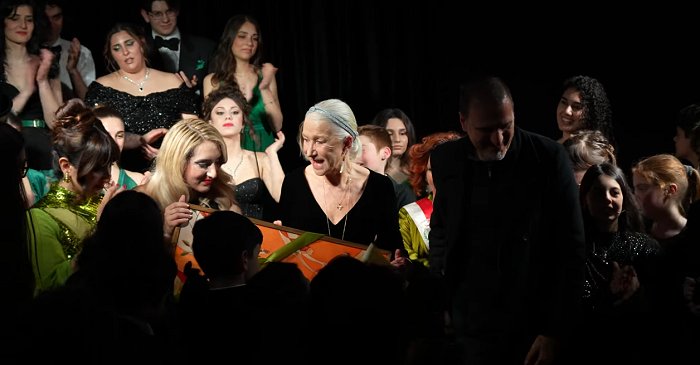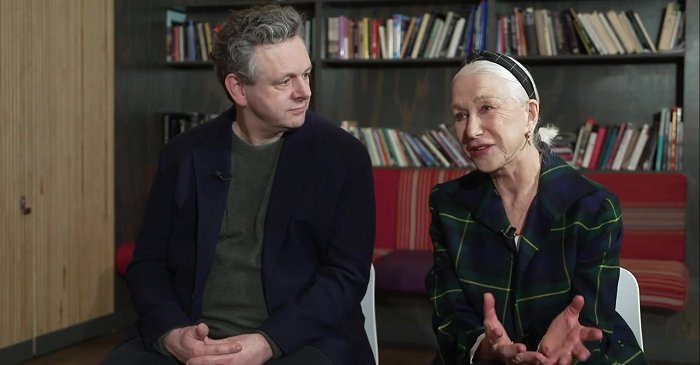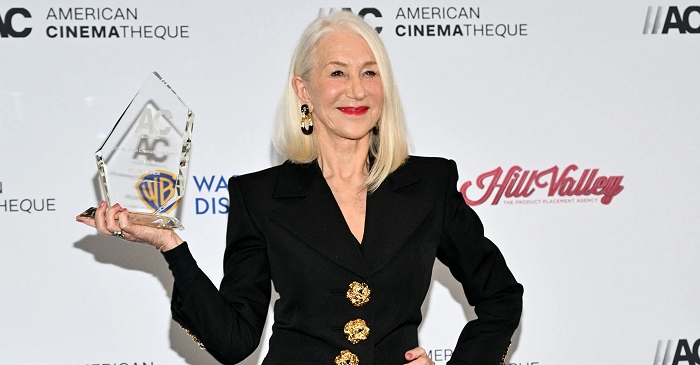
|
Welcome to The Helen Mirren Archives, your premiere web resource on the British actress. Best known for her performances with the Royal Shakespeare Company, "Prime
Suspect" and her Oscar-winning role in "The Queen", Helen Mirren is one of the world's most eminent actors today. This unofficial fansite provides you with all latest
news, photos and videos on her past and present projects. Enjoy your stay.
|
Celebrating
10 years
on the web
|
Helen Mirren thanks the theatre for two things. Firstly, it helped keep her away from the paws of predatory Hollywood producers. And secondly, it showed her how to play one of history’s most extraordinary rulers. Mirren in person is compact, poised and composed. She sits a little defensively, arms crossed revealing the tattoo on her hand (the interlocking Vs, inked when she was very drunk on a Native American reservation almost half a century ago, mean “love thy neighbour”). There is just a hint of power. But the power is there when she calls on it, as her latest role proves: Russia’s extraordinary Catherine the Great, the 18th century enlightened despot who ruthlessly deployed reform, intrigue, war and diplomacy to transform the lives of millions and usher in her nation’s golden age.
Mirren claims to be playing the role almost by accident. A few years ago in a press interview she was asked, as she often is, whom she would like to play next. “My mind always goes completely blank when anyone asks me that question,” she says. “I can’t think of a single character from literature or anything. But Catherine popped into my mind, so I very cavalierly and randomly thought, oh well Catherine, I’d quite like to play Catherine the Great. “[I was] absolutely convinced that it would never happen.” It wasn’t an entirely random choice. Mirren has, after all, played three queens and an empress. And she knew a little of Catherine’s story. “There are not many of those very powerful, very successful female rulers in history,” she says. “Naturally, you know, one thinks of Catherine. And extraordinarily, because of the changing landscape of film production, of television, of the dissemination of drama, it has become possible to do something like this.
“There have been very glamourised, romanticised films of Catherine, that one with Marlene Dietrich, but it was totally fake. To do an authentic, truthful version of history has not been done.” Of course, being drama, liberties have been taken. There is the question of Mirren’s age, for example. She is 74, seven years older than Catherine was when she died, and decades older than the Catherine she is portraying. And some events have been moved around for dramatic effect: an attempted coup, a change of lovers from Grigory Orlov (played by Australian Richard Roxburgh) to Grigory Potemkin (Australian Jason Clarke). But Mirren says the mini-series is a friend to the truth, not an enemy. She wants to reverse an attempt to “rub Catherine out of history”. “They tried to do it by sexualising her,” she says. “Which was a complete false calumny, but it was done deliberately to undermine in a misogynist way, to undermine her unbelievable achievements.
“You know, women are very successfully erased out of history.” Mirren is referring to the most infamous story about Catherine: the oft-repeated myth she died while trying to have sex with a horse. Historians believe the story was invented to damage her legacy, along with hints at her promiscuity. Mirren prefers to think of Catherine as a “serial monogamist”, and suggests the stories of the goings on at her court should be well and truly placed in their era “which was absolutely full of goings on, for want of a better word”. If anything from the court of Catherine seems shocking (and the stunning costumes in this drama do spend some time not being worn by their owners), it’s because “we’re still sort of clawing our way out of the Victorian era”, says Mirren. She cites the #MeToo movement as evidence of the prejudice women still have to overcome – but she says it is “maybe less” in her world than other professions. Most of her work is in the theatre and “the theatre world that I entered into as a young person was a liberal world – it was perfectly cool to be gay and women did have good roles”.
However it is “no mistake” that #MeToo exploded through Hollywood, she says. “I applaud the movement, it was absolutely about time. In my profession we are constantly unemployed, no matter how successful we are, constantly looking for the next job. So people in that situation are very vulnerable to the people who can give them that job. “You’re constantly, you know, outside hotel rooms with these ‘sides’ [pages of scripts used for auditions] in your hand, waiting to go in and try and make them give you a job, and that situation is vulnerable to abuse, incredibly vulnerable to abuse.” But Mirren doesn’t personally feel that vulnerability, and says she never did, “because I didn’t want it that much. I always had a very solid theatre career, my first love was theatre and my emotional commitment was to the theatre. I didn’t really care about getting a job in a movie, honestly, in those days.” Even now she tries not to leave too many years between stage roles, though she describes herself as “quite lazy” in seeking work – “when I work, I work hard, but I’m terrified of my own laziness when I don’t work”.
And on that stage, she rules. “You know, women are very successfully erased out of history”, says Mirren, here in a scene with Jason Clarke from Catherine The Great. “If anything has given me the capability to play Catherine it’s probably that because, when you walk out on a stage you have got to control that audience. So a leader like Catherine has to walk out into her court and [be in] control. It’s an audience with the queen.” She is not a method actor but there was one moment she had an inkling of the inner life of her subject, Mirren says. She was standing in one of Catherine’s palaces (the series was shot in real, restored buildings where Catherine lived), “in one of those amazing rooms, looking out of a window, looking at what Catherine would have seen”. “At that moment I got an incredible feeling of the wealth, of the loneliness, of that sense of, not power in the sense that you switch a light on … power that comes with work, just constant work, constant attention to detail and to what’s happening next and how do we deal with it?” Clarke, who plays the dashing Grigory Potemkin, says this mini-series was one of the highlights of his career – in no small measure thanks to working with Mirren. “She is incredibly focused, totally professional, but she’s normal and human and easy to be with,” he says. “She’s ‘after it’, you know? She’s not ‘this is going to be my performance, Jason, so just get out of my way’. She’s still vulnerable. She’s still scared that it’s not going to come.
“You still see the basics of why she started and went down the [acting] road and why she’s still on it. And that is just, for me, it’s inspiring.”

